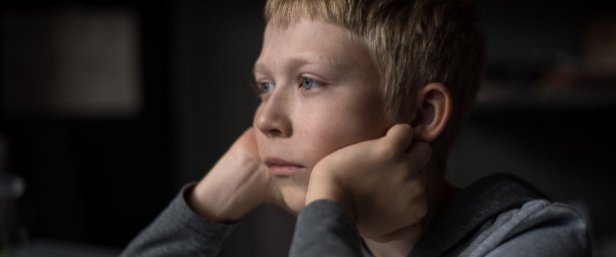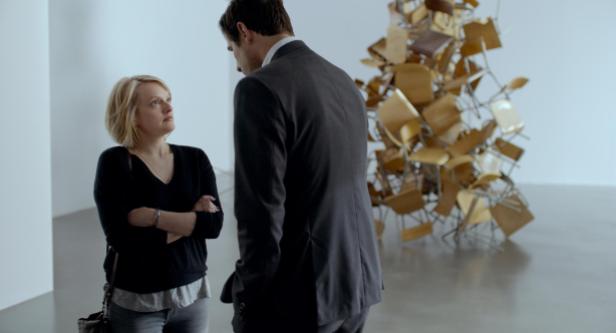


27/03/18
Politics. What’s it all about, eh?
Well, a viewing of This House will certainly make you feel a lot more informed on the subject. Not so much the more visible aspects of it – the ministers themselves – as those who wheel and deal behind the scenes: the party Whips. There’s a live band up in the gallery, who offer a couple of spirited Bowie songs that eerily echo what’s happening down on the stage and, lest anybody assumes that politics inevitably make for dour viewing, please be aware that this is a lively, engaging piece, utilising humour to illuminate some grim facts. Ultimately, what the production does best is to demonstrate what an outmoded farce our political system is, and it’s very entertaining in the telling.
This play is a fiction, though it references many real players and actual events. It is the whips’ job to ensure that as many members as possible make themselves available to come in to the Commons and vote on the latest motion set before the house. Sometimes, they are called upon to make near superhuman efforts in order to effect a win – in some cases, even calling MPs in from their hospital beds! First performed at the NT’s 400 seat Cottesloe Theatre (or the Dorfman, as it’s now called) in 2013, This House‘s success has created such demand that it’s now playing much larger venues, which obviously has something of a distancing effect, and I find myself envying the select band of spectators who are seated on green benches on the stage (in the House of Commons chamber) so that they’re woven into the very fabric of the piece.
The action takes place in the years 1974 to 1979, when the UK famously had a ‘hung’ parliament and where the absence of a single voting member might result in the ruling Labour party having to vacate its seats. Everyone on the red side of the house is horribly aware that a certain Mrs Thatcher is waiting in the wings for her chance to rule the world… Oops, sorry, I mean, country. Obviously.
If the characters on both sides of the divide occasionally come across as caricatures – the Labour team all ‘eh up, lad, what’s ‘appenin’?’, the Tories as suave and slick as their Savile Row suits – I feel that’s entirely intentional on the part of writer James Graham. With such a big cast, it’s crucial that those time-worn divisions are made as broad and accessible as possible. In this, he succeeds admirably. With everybody on stage working their respective socks off, it’s difficult to single out individual performances, but I do like Martin Marquez’s turn as cockney wide boy, Bob Mellish, and Matthew Pidgeon’s ultra-groomed toff, Jack Weatherill, is also eminently watchable. Natalie Grady makes a big impression as the labour team’s ‘token’ female, Ann Taylor, ready to correct anyone who has the temerity to underestimate her abilities.
So, grab tickets for this and, if it’s at all possible, get yourselves as close to that stage as you can – perhaps, if you’re really lucky, even on it. Interestingly, it doesn’t cost more. You just need to ask when you make the booking.
4 stars
Philip Caveney


























